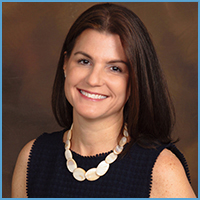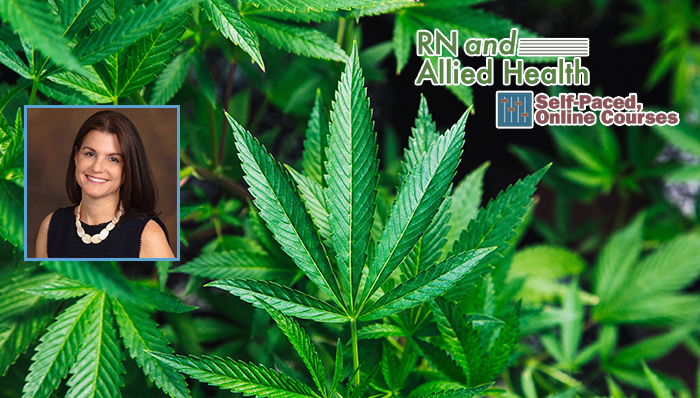Originally presented May 9, 2018 as part of the UNC Cancer Network RN and Allied Health Lecture Series. This Self-Paced, Online Course expired June 12, 2019.
This is a Non-Credit course and does NOT offer continuing education credits.
Presenter

Alisha Benner, MD
Lead Physician
Aspire Health
Medical Marijuana: It’s High Time to Talk
In recent years, the public and lawmakers have recognized the benefits of using marijuana as part of a treatment plan for patients with difficult diseases to manage. For example, cancer patients undergoing chemotherapy find that medical marijuana diminishes nausea and can stimulate appetite. This presentation provides an overview of the complex history of medical marijuana and the current applications of its use.
Learning Outcomes
- Recall the rich history and debate over medical marijuana
- List at least 3 diseases for which medical marijuana has demonstrated clinical benefit
- Discuss the “endocannabinoid system” and the “entourage effect”
Credits Offered
- 1.0 ANCC (CNE) hours of study.
- 1 ASRT Category A CE Credit
- General Participation
Requirements
To receive credit for this course, you must:
- Watch a lecture video recording.
- Complete the lecture post test and obtain a passing score of 80% or higher.
- Complete the course evaluation.
- Select credit type.
Estimated course completion time: 1 hour
Disclosures
This activity has been planned and implemented under the sole supervision of the course directors, in association with the UNC Office of Continuing Professional Development (UNC CPD). Dr. Thomas Shea consults for Spectrum Pharma and receives research support from Millennium, Otsuka, GSK, BMS, Novartis and Seattle Genetics. Dr. James Coghill, MD, and CPD staff have no relevant financial relationships with commercial interests as defined by the ACCME.
The presenter, Alisha Benner, MD, has no conflicts of interest relevant to this presentation.
Accreditation
This is a Non-Credit course and does NOT offer continuing education credits.
Disclaimer
Please note: This course was published more than one year ago. The facts and conclusions presented may have since changed and may no longer be accurate. Questions about personal health should always be referred to a physician or other health care professional.
